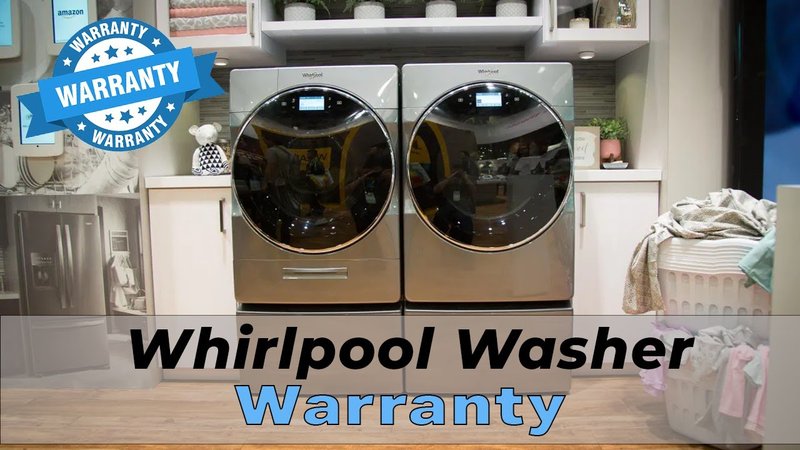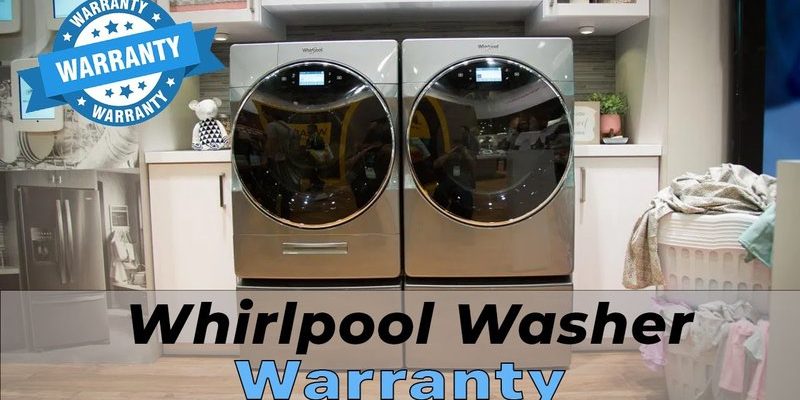
Here’s the thing: warranties can be tricky, like those fine-print terms you barely skim over. Some warranties stick like glue to the first buyer, while others are more flexible, passing along to whoever inherits or purchases the appliance next. So when it comes to Whirlpool dishwashers, can you transfer the warranty to a new owner? Let me explain how this works, what to expect, and when it really matters.
Understanding Whirlpool’s Standard Warranty Policy
First off, the basics. Whirlpool generally offers a limited manufacturer’s warranty on their dishwashers—usually covering parts and labor for one year from the original purchase date. This warranty is designed to protect you against defects in materials or workmanship. But here’s the catch: most manufacturer warranties, including Whirlpool’s, are non-transferable unless explicitly stated otherwise.
Why does this matter? Because the warranty is typically registered under the original buyer’s name and purchase receipt. If you sell your dishwasher, the new owner usually won’t be covered, as the warranty’s clock started ticking for someone else. It’s like renting a movie—you get to watch it once, but you can’t just hand your ticket to a friend for another show.
However, Whirlpool sometimes offers extended or special warranties with different terms. These might have transfer options, but they’re exceptions rather than the rule. It’s always best to check the actual warranty paperwork or Whirlpool’s official site to see what applies to your specific dishwasher model.
Why Warranties Often Don’t Transfer: The Fine Print Explained
You might be wondering why warranties like Whirlpool’s usually don’t transfer to new owners. The reason boils down to risk and control. Warranty coverage means the company promises to fix or replace parts if something goes wrong. When the appliance changes hands, it’s harder to verify the conditions of use and maintenance history.
Manufacturers rely on the original buyer’s information to validate claims—things like the purchase date, proof of installation, and sometimes serial numbers tied to warranty codes. If the dishwasher has changed owners, companies can’t be sure it wasn’t damaged through misuse or improper repair, which would void the warranty.
Here’s a simple analogy: think of a warranty like a gym membership. The gym sells a membership to one person and trusts that person to take care of their account and usage. If you give your membership away without approval, the gym won’t honor it because they can’t guarantee the new user’s behavior. Same with warranties—they’re personalized promises.
Can You Register a Whirlpool Dishwasher Warranty for a New Owner?
Alright, so what if you’re the new owner of a used Whirlpool dishwasher? Can you register the warranty yourself or somehow transfer it? Honestly, in most cases, **you can’t just re-register or transfer the manufacturer warranty**. Whirlpool’s system ties the warranty to the original purchase invoice and customer information.
However, if you happen to have the original purchase receipt and the dishwasher is still within the warranty period, the new owner might *technically* get some coverage if Whirlpool is flexible or if the seller cooperates. But it’s not guaranteed. Companies usually require the original buyer to file warranty claims.
You might think, “What if I contact Whirlpool’s customer support directly?” That’s a solid move. Sometimes customer service can provide options like extended warranty plans or paid repairs, but standard warranties rarely get shifted to a different name. The appliances don’t have a “pairing” or “sync” code like remotes or electronics that would allow easy owner swaps.
What About Extended Warranties or Third-Party Protection Plans?
Here’s another twist: if a Whirlpool dishwasher came with an extended warranty—perhaps purchased from the retailer or a third party—that usually *can* be transferred, but only if the plan allows it. These plans often have their own terms and conditions separate from Whirlpool’s manufacturer warranty.
If you’re buying a used dishwasher, ask the seller if there is an active extended warranty and whether it’s transferable. Some service contracts let you “assign” coverage to a new owner with proper paperwork and fees. Others might not. It’s kind of like insurance policies—some cover you if you sell the insured item, others don’t.
How To Protect Yourself When Buying a Used Whirlpool Dishwasher
If you’re eyeing a secondhand Whirlpool dishwasher, it’s smart to know where you stand on warranty coverage before sealing the deal. Here’s what I suggest:
- Ask for the original purchase receipt: This confirms when the warranty clock started ticking and helps check if it’s still valid.
- Request warranty paperwork: The actual documents or service agreements show what’s covered and if transfer is possible.
- Inspect the dishwasher’s condition: Even with a warranty, damage from misuse or improper installation won’t be covered.
- Consider buying an extended warranty: You can often purchase protection plans separately to cover repairs after the manufacturer’s warranty expires.
Honestly, buying used means accepting some risk. But being proactive can save you from surprise repair costs.
What Happens If Your Warranty Can’t Be Transferred?
If you already bought a used Whirlpool dishwasher and found out the warranty won’t transfer, don’t panic. There are still ways to keep your appliance humming without huge expenses.
Besides Whirlpool’s official repairs, you can:
- Look into local appliance repair services: They often troubleshoot and fix common issues at lower costs.
- Try simple troubleshooting yourself: Resetting the dishwasher, checking connections, or replacing parts like filters or batteries can solve many problems.
- Use online support: Whirlpool’s website has manuals, FAQs, and troubleshooting guides that are quite helpful.
Think of your dishwasher like a trusty car—just because the original warranty ended doesn’t mean it’s doomed. Regular maintenance goes a long way.
Making Sense of Warranty Terms for Peace of Mind
Here’s the takeaway: warranties are promises, but they come with rules. Whirlpool dishwashers usually offer a limited, non-transferable warranty. That means if you’re a new owner, you might not get the same coverage as the original buyer.
Still, you can protect yourself by:
- Keeping all purchase and warranty documents safe
- Asking detailed questions before buying used
- Considering extended or third-party warranties that might be transferable
And remember, warranties often don’t cover things like accidental damage, improper installation, or normal wear and tear. So a warranty isn’t a magic shield, but more like a helpful safety net if things go wrong early on.
“A warranty is like a safety harness—not a guarantee you’ll never fall, but something to catch you if you trip.”
Final Thoughts: Should You Expect To Transfer Your Whirlpool Dishwasher Warranty?
Honestly, if you’re planning to sell or buy a used Whirlpool dishwasher, don’t count on the warranty moving with it. Most manufacturer warranties, including Whirlpool’s, tie to the original owner and don’t allow transfers. That’s just how the system works.
But don’t let that scare you! Knowing this fact upfront lets you make smarter decisions—whether that means negotiating a better price for a used dishwasher, buying an extended warranty, or simply budgeting for potential repairs down the road.
At the end of the day, a Whirlpool dishwasher’s quality and your care for it matter more than any warranty. So keep your appliance clean, troubleshoot minor issues early, and enjoy the convenience it brings to your kitchen—warranty or not.
